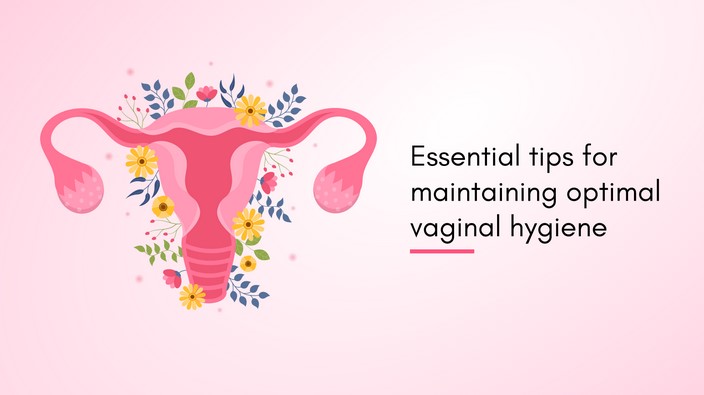
Pregnancy is a transformative experience, and ensuring the health and well-being of both the mother and baby during this time is essential. Prenatal care best practices are designed to help expectant mothers navigate the physical and emotional changes of pregnancy, while minimizing risks and promoting the optimal development of the baby. From the first trimester to delivery, prenatal care is an ongoing process that involves regular medical check-ups, lifestyle modifications, and proper education about pregnancy-related health concerns. This article will outline the key practices that can help ensure a healthy pregnancy, focusing on early prenatal visits, nutrition, and mental health.
The Importance of Early Prenatal Care
One of the most important aspects of ensuring a healthy pregnancy is initiating prenatal care early. Early prenatal care allows healthcare providers to monitor the health of both the mother and the baby, identify potential complications, and develop a personalized plan for care throughout the pregnancy.
1. Scheduling the First Prenatal Visit
The first prenatal visit should occur as soon as a woman finds out she is pregnant, ideally within the first eight weeks of pregnancy. Early visits are crucial for several reasons:
- Confirming Pregnancy: The first visit allows the healthcare provider to confirm the pregnancy through blood tests or ultrasounds.
- Assessing Health Risks: Healthcare providers will assess the mother’s medical history, lifestyle habits, and any pre-existing health conditions (such as diabetes, hypertension, or thyroid problems) that may affect the pregnancy.
- Establishing a Care Plan: Based on the assessment, the healthcare provider can establish a schedule for prenatal check-ups, which typically occur every four weeks during the first 28 weeks of pregnancy, then every two weeks until the 36th week, and weekly thereafter.
Early prenatal visits are a critical component of prenatal care best practices, allowing for timely interventions if needed and offering guidance on how to maintain a healthy pregnancy.
2. Routine Monitoring and Tests
Throughout the pregnancy, expectant mothers should expect a variety of routine screenings and tests designed to monitor both maternal and fetal health. These tests include:
- Blood Tests: Early blood tests can help identify conditions such as anemia, infections, and blood type incompatibilities, as well as screen for genetic disorders and other potential health risks.
- Ultrasounds: Ultrasound exams, usually performed between weeks 18 and 22 of pregnancy, allow healthcare providers to check the baby’s growth and development, monitor fetal heart rate, and detect any abnormalities.
- Glucose Screening: Around the 24th to 28th week, a glucose tolerance test is done to screen for gestational diabetes, a condition that can affect pregnancy outcomes if left untreated.
- Urine Tests: Regular urine tests help monitor kidney function, protein levels, and the potential for urinary tract infections or preeclampsia (a condition characterized by high blood pressure).
By following prenatal care best practices, such as keeping up with regular check-ups and screenings, mothers can ensure that any issues are caught early and managed effectively.
Nutrition and Lifestyle Choices for a Healthy Pregnancy
Proper nutrition and healthy lifestyle choices are key to ensuring the well-being of both the mother and the growing baby. Pregnant women need to consume a balanced diet that supports fetal growth and provides the necessary nutrients for both the mother’s health and the baby’s development.
1. Eating a Balanced Diet
A well-rounded diet is one of the cornerstones of a healthy pregnancy. Expectant mothers should aim to consume a variety of nutrient-rich foods to ensure they are meeting the increased demands of pregnancy. Key nutrients to focus on include:
- Folic Acid: Folic acid, a B-vitamin, is crucial in the early stages of pregnancy to prevent neural tube defects, such as spina bifida. It’s recommended that pregnant women consume at least 400-800 micrograms of folic acid daily, found in fortified cereals, leafy greens, and legumes.
- Iron: Iron helps prevent anemia and ensures the body has enough oxygen for both the mother and baby. Foods rich in iron include lean meats, beans, spinach, and fortified cereals.
- Calcium: Calcium is necessary for the development of the baby’s bones and teeth. Pregnant women should consume dairy products, fortified plant-based milk, leafy greens, or calcium-rich supplements if needed.
- Protein: Protein supports tissue growth, including the baby’s muscles and organs. Lean meats, poultry, fish, eggs, and legumes are excellent sources of protein.
Hydration is also vital during pregnancy, as it helps maintain amniotic fluid levels, supports increased blood volume, and prevents dehydration. Aim to drink at least eight glasses of water a day, and avoid excessive caffeine or sugary drinks.
2. Avoiding Harmful Substances
Pregnancy is a time when avoiding harmful substances is paramount for the health of both the mother and the baby. Pregnant women should:
- Quit Smoking: Smoking during pregnancy increases the risk of complications such as low birth weight, premature birth, and developmental problems. Quitting smoking as soon as possible can greatly improve outcomes.
- Limit Alcohol: Alcohol consumption during pregnancy can lead to fetal alcohol syndrome, a condition that causes developmental delays, birth defects, and cognitive impairments. It is advised to avoid alcohol entirely during pregnancy.
- Be Cautious with Medications: Certain medications, including over-the-counter drugs and herbal supplements, may be harmful during pregnancy. Always consult with a healthcare provider before taking any new medication or supplement.
Maintaining a healthy diet and avoiding harmful substances are essential prenatal care best practices that contribute to a successful pregnancy and a healthy baby.
Mental Health and Emotional Well-Being
Pregnancy can be an emotional and sometimes stressful time, and mental health is just as important as physical health during this period. The hormonal changes, physical discomfort, and anticipation of becoming a parent can affect an expectant mother’s emotional state. Addressing mental health needs is an important part of prenatal care.
1. Managing Stress and Anxiety
Pregnancy can be a time of heightened emotions and stress. It’s important for expectant mothers to practice stress-relieving techniques to maintain emotional balance. Some effective strategies include:
- Relaxation Techniques: Techniques such as deep breathing, meditation, and prenatal yoga can help manage stress and promote relaxation.
- Talking to a Professional: If anxiety or depression becomes overwhelming, seeking support from a mental health professional can be beneficial. Therapy, counseling, or support groups can provide valuable coping tools.
2. Maintaining a Support System
A strong support system is essential during pregnancy. Emotional support from a partner, family, and friends can help reduce feelings of isolation and stress. Additionally, discussing concerns with a healthcare provider can offer reassurance and provide useful information to ease anxieties.
In conclusion, prenatal care best practices are essential for ensuring a healthy pregnancy for both mother and baby. Early prenatal visits, routine screenings, a balanced diet, healthy lifestyle choices, and emotional support all contribute to a positive pregnancy experience. By following these best practices, expectant mothers can reduce the risk of complications, promote the well-being of their growing baby, and prepare for a successful birth. With the right care, knowledge, and support, every pregnancy can be a healthy and fulfilling journey.




